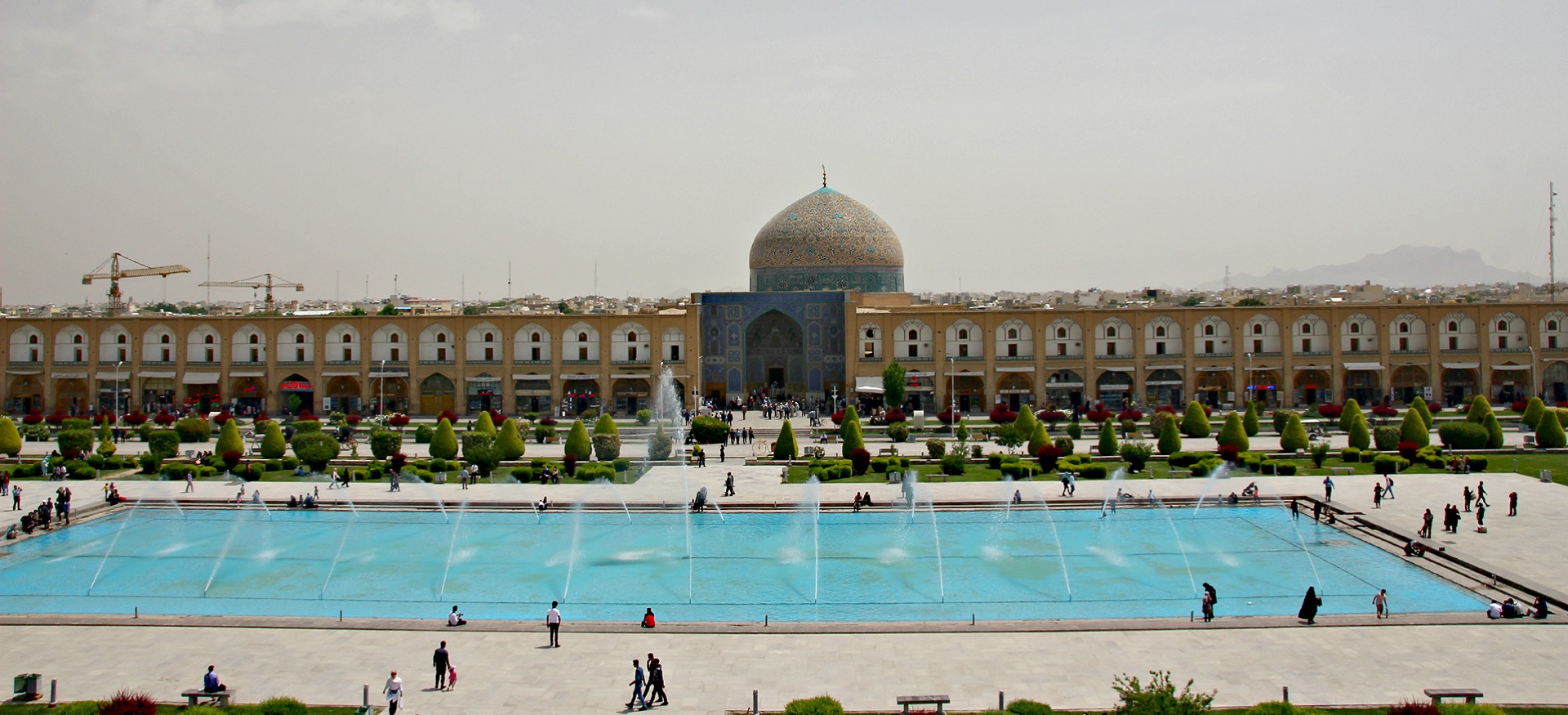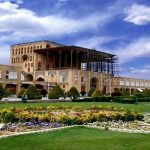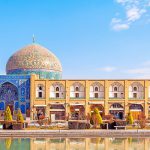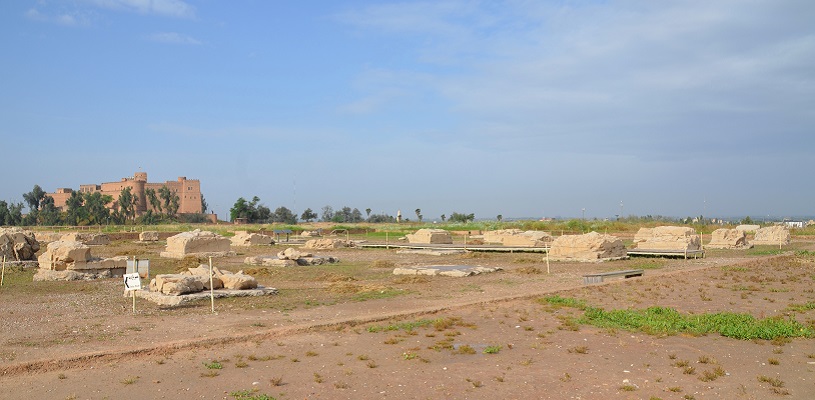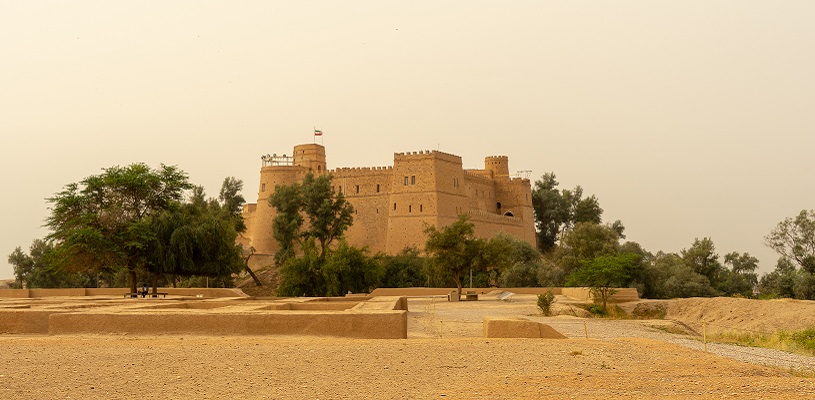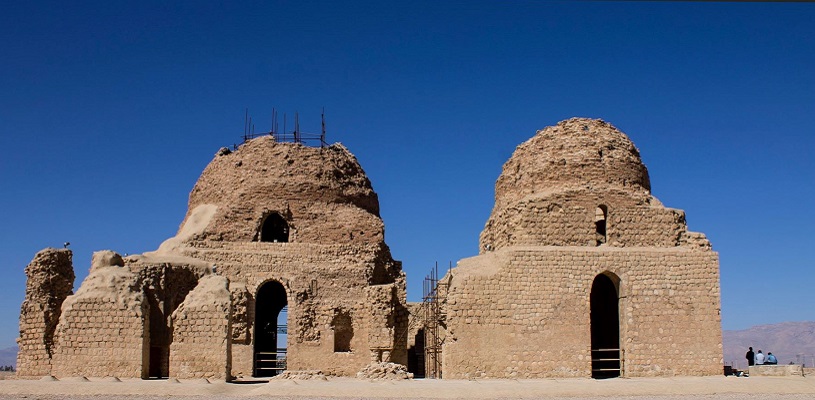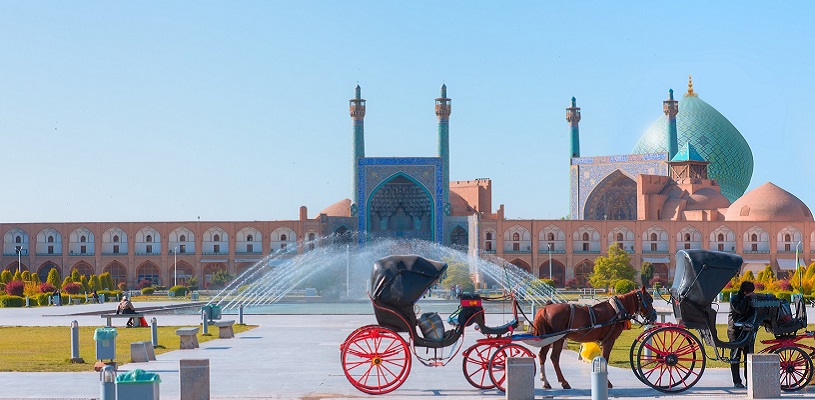
Shah Mosque (Abbasi Great Mosque, Imam mosque) | Isfahan, Iran
A marvelous example of the architectural genius on the southern part of the Naqsh-e Jahan Square in Isfahan attracts the attention of any visitor. Indeed, Shah Mosque, also known as Imam Mosque or Abbasi Great Mosque is a peerless historical mosque constructed under the reign of the Safavid king, Shah Abbas I (1571 -1629). Along with Naqsh-e Jahan Square, this property was inscribed on the UNESCO world heritage list. In fact, Shah Mosque, literally meaning King’s mosque, incorporates royal majesty into the breathtaking artwork. Above all, the Royal Mosque owes its beauty to the Iranian seven-color mosaic tiles as well as the calligraphic inscriptions.
Contents
- 1 Why Visit Shah Mosque (Imam Mosque)?
- 2 The History of Imam Mosque
- 3 Architecture and Design of the Royal Mosque – Shah Mosque Isfahan
- 4 The Entrance Portal and The Alignment Challenge – Shah Mosque Isfahan
- 5 The Courtyard of The Imam Mosque in Isfahan
- 6 The Great Dome of Shah Mosque in Isfahan
- 7 More about Isfahan Shah Mosque
- 8 Like to check out Shah Mosque?
- 9 Shah Mosque Tour
- 10 Abbasi Great Mosque on Map
Why Visit Shah Mosque (Imam Mosque)?
- Shah Mosque is an admirable UNESCO-inscribed site.
- A historical mosque with Islamic architectural brilliance
- The largest dome in the city of Isfahan
- Impressive acoustic effect under the dome
- Wonderfull seven-colored mosaic tilework
- Amazing calligraphy inscriptions with thuluth script
- Eye-catching Muqarnas, stalactite-like tilework, of the entrance portico
The History of Imam Mosque
Following the relocation of the Safavid capital from Qazvin to Isfahan 400 years ago, Shah Abbas planned to put his majesty on display in the new capital. Hence, he ordered the construction of Naqsh-e Jahan Square. Indeed, the zenith of this square was the Shah Mosque. Since the mosque was meant to show case the grandeur of the Safavid Empire, it favors a genius architecture. Thus, Shah Mosque owns the largest dome of the city. Additionally, the major architect, Sheikh Bahai designed two religious schools in the mosque. However, the workers had to rush, take some shortcuts and finish the construction hastily, as the king intended to have the construction completed during his lifetime. They also maintained another vision for the Shah Mosque. Consequently, Shah Mosque substituted the Isfahan Jame Mosque. So, Shah Mosque also turned to the venue for Friday prayers.
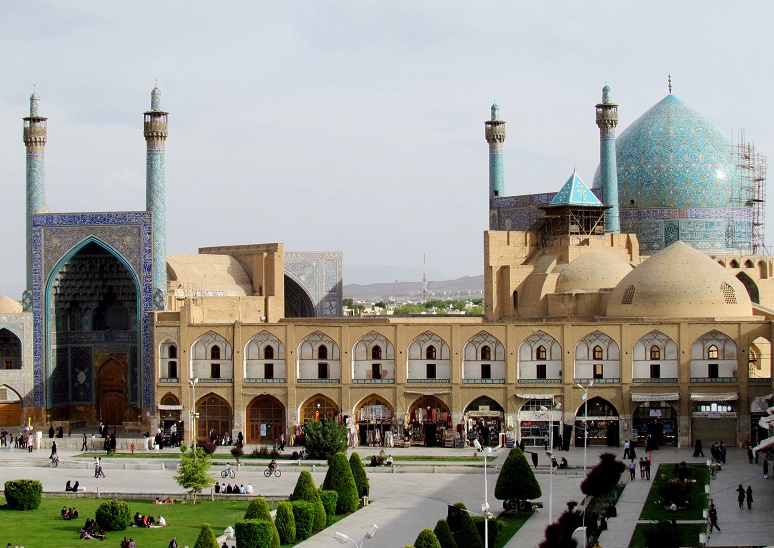
Shah Mosque Photo – Imam Mosque Isfahan
Architecture and Design of the Royal Mosque – Shah Mosque Isfahan
Right before entering the mosque, the entrance portico catches the eyes of the visitors with its splendor. Primarily, the decorative muqarnas vaulting in the Iwan entrance is a symbolic representation of the creation of the universe by God. It will also transit the visitors smoothly into the domed ceiling. Additionally, two 42 m-high minarets, topped by wooden balconies rise imposingly at the sides of the entrance portal. Let me take you on a tour of Shah Mosque, beginning from the entrance of the mosque.
The Entrance Portal and The Alignment Challenge – Shah Mosque Isfahan
Obviously, the construction of the mosque has posed a great challenge. According to the Islamic architecture, mosques must be in alignment with Mecca. However, Shah Mosque required the designers extra effort to achieve the necessary alignment. Thus, as the visitors walk through the entrance portal, they will experience a subtle turn to the right through a bent passageway, which leads to a large courtyard surrounded with fascinating two-story arcades. In the hallway, one will come across a Sangab. This exquisite stone water trough was originally used to provide water for the visitors.
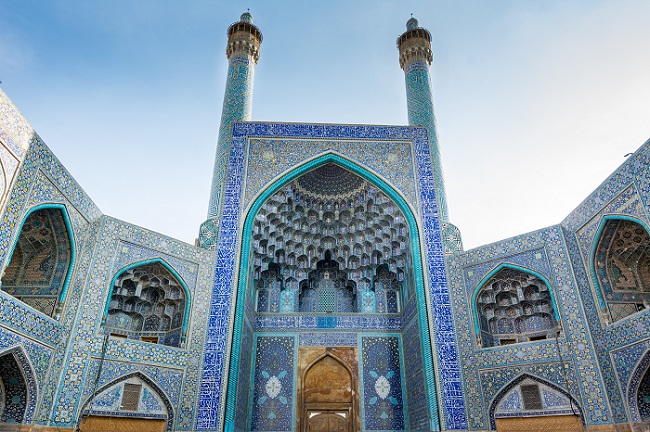
The entrance of Shah mosque – Imam Msoque Iran
The Courtyard of The Imam Mosque in Isfahan
The Shah Mosque combines the enchanting Persian and Islamic architectural characteristics. Especially, the mosque displays a four-Iwan design, which it borrows from the Persian architecture. Previously, the Sassanid (224-651 AD) constructions abounded with Iwans, which later influenced the Islamic architecture.
The four Iwan Style emerges in the form of four Iwans surrounding the central courtyard of the mosque. The large arcade on the eastern side, the smaller arcade on the western side with its magnificent tilework and Mihrab, and two religious schools on the south western and southeastern corners of the courtyard embrace the visitors with their modesty.
The Great Dome of Shah Mosque in Isfahan
In addition, on the southern part, the major highlight of the mosque stands. The colossal turquoise dome combines visual and acoustic attractions. If you are lucky enough, you will get the opportunity of enjoying the song of a singer being echoed as they are singing under the dome, while you are watching the charming interior of the double-layered dome.
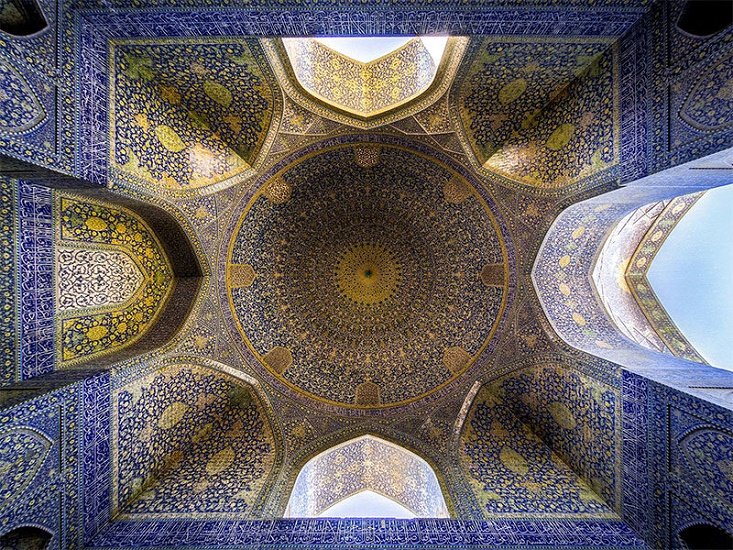
More about Isfahan Shah Mosque
Visit Hours of The Mosque
In Spring and Summer from 9 a.m. to 4 p.m.
In Fall and Winter from 9 a.m. to 9 p.m.
Please note that the mosque is not open to visitors during the prayers times and the religious holidays.
Nearby Attractions
Being in the Naqshe Jahan square gives you access to plenty of marvellous tourist attractions. Sheikh Lotfollah Mosque, Grand Bazar, and Ali Qapu imperial palace, in addition to Si-o-Se Pol and Khaju Bridge are some fine examples. Furthermore, Chehel Sotun Palace and Hasht Behesht edifice are worth visiting.
Restaurants Near Shah Mosque
Naqshe Jahan Restaurant
Sharzad Restaurant
Grilled Golestan
Shad Beryani
Hermes Café Restaurant
Like to check out Shah Mosque?
Then hop aboard one of our multi-day Cultural Tours or our few-hour Walking Tour in Isfahan.
Abbasi Great Mosque on Map
Keywords: Abbasi great mosque isfahan, masjid i shah, imam mosque iran, imam mosque in isfahan, shah mosque of isfahan, shah mosque history


